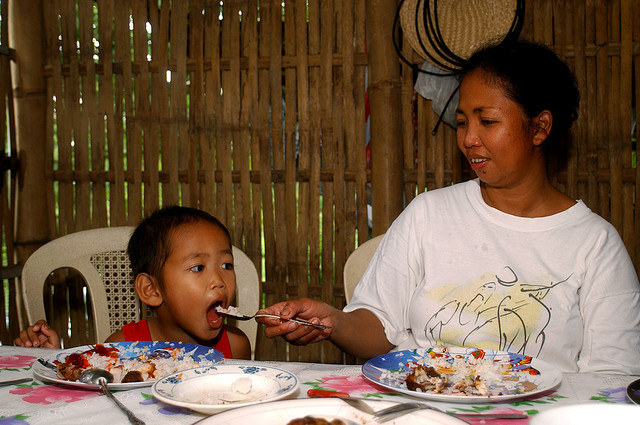If you learned that a $1 investment in your child’s nutritional intake during infancy would ultimately net an $18 return, would you make the investment? Yes, if you had the means, it’s likely you would. It’s a win-win: healthier child, healthier bank account.
A recent IFPRI study, “The Economic Rationale for Investing in Stunting Reduction,” published in Maternal & Child Nutrition, suggests that governments would also benefit from making that investment on a much larger scale. IFPRI Senior Researcher John Hoddinott and four coauthors asked: “In a world where there are many things that are intrinsically valuable and public resources are limited, why give special primacy to investments that will address children’s undernutrition?
The answer is because it makes economic sense. In Bangladesh, every $1 that the government spends on a package of interventions proven to reduce chronic undernutrition generates $18 in higher incomes. What’s more, that rate is only the median among the 17 high-burden countries with programs in the study, which specifically evaluated programs targeted at preventing stunting (low height for one’s age) during the first thousand days of a child’s life (from conception to age two). In Indonesia, every $1 spent may generate up to $48 in higher income.
These investments were discovered to be so effective at aiding children’s physical and cognitive development that children were not only healthier but also able to earn more money as adults and make a greater positive contribution to their national economies. Overall, researchers found that reducing stunting by 20 percent would increase incomes by 11 percent.
In a related study—“Adult Consequences of Growth Failure in Early Childhood”— Hoddinott and his coauthors discuss the cognitive deficiencies suffered by children who are undernourished, particularly in the first two years of life, when adequate nutrition is critical. Because of neurological damage that results from chronic undernutrition, these children perform less well in school than their properly nourished peers, acquire less human capital via formal education, and ultimately earn less income as adults.
“We have evidence from around the world,” Hoddinott says, “that suggests that taller and better educated people earn a premium in the labor market.” Interventions aimed at reducing stunting—namely those that provide both micronutrients to children and information about healthy feeding practices to mothers—are not merely intrinsically valuable but economically valuable as well.







